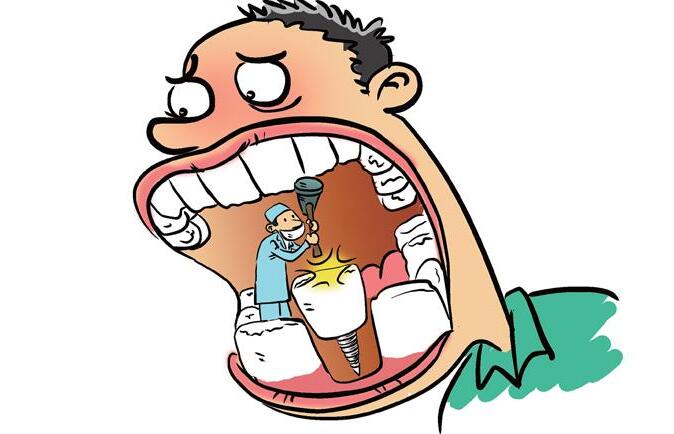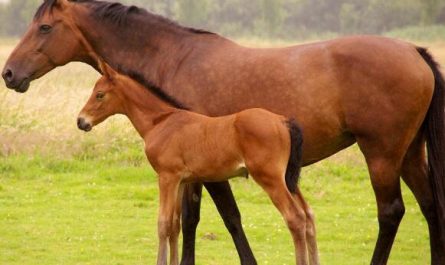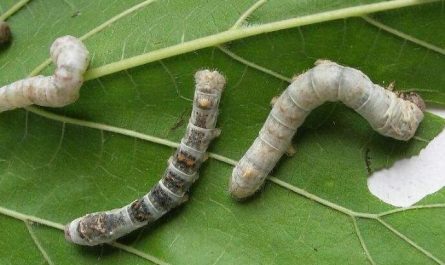Wisdom teeth, some people have one, and some people have four. Its only value in modern society may be to generate income for doctors.
Most people may think that wisdom teeth, like the appendix, are the remnants of human evolution.
In 2011, the United States uprooted 10 million wisdom teeth, which is equivalent to every New Yorker getting one and having a surplus.
Are wisdom teeth really a remnant of evolution? I don’t know if you have such doubts: Why don’t my parents extract their wisdom teeth? Why don’t grandparents have to extract wisdom teeth? Why don’t the ancients seem to have their wisdom teeth removed?
The ancients complained about their poor eyesight, complained about their hair graying too fast, and complained about their bad teeth, but they didn’t seem to have left any clues to complain about their wisdom teeth…
The answer may be this: Wisdom teeth could have sprouted naturally and come in handy, but with the development of industrialization, they could not grow up properly, and thus became a scourge.
In other words, it is the industrialized life that makes wisdom teeth useless or even harmful, not that evolution has left it out. It’s not that wisdom teeth have changed, but we have changed.
According to statistics, 35% of people in the world will not grow wisdom teeth in their lifetime. Compared with the children of these evolved talents, the remaining 65% will grow 1 to 4 wisdom teeth.
Some people even grow more than 4 wisdom teeth. I have to say that this is probably another talent.
Wisdom teeth are actually the third molars of humans.
Different animals have their own distinctive teeth. A mouse’s incisor teeth will continue to grow in a short lifetime; a shark’s tooth can easily be replaced with a new one if it is broken, and it will grow thousands of teeth in a lifetime.
As for humans, the division of teeth is different. The front teeth are responsible for cutting, the little canine teeth are responsible for tearing, and the molars are responsible for grinding.
But we only have two sets of teeth. The first set is deciduous teeth, which germinate when they are 10 months to 12 months old, and then gradually fall off when they are 6 to 13 years old, and are replaced with the second set of permanent teeth.
Why do you want to change teeth? As I grow older, my head becomes bigger and my gums become bigger. But the baby teeth that were long in infancy did not grow up. As a result, the gap between the teeth of the child became wider and the teeth decayed.
Therefore, in order to adapt to the growing head, the teeth must grow up. This is the necessity for humans to have 28 permanent teeth.
There are only two sets of human teeth, and permanent teeth are replaced early when they are adapted to the growth period. This makes the durability of permanent teeth very insecure after adulthood.
So around the age of 20, another set of pre-designed teeth in the human body-wisdom teeth, appeared just like the “welfare patch”.
Wisdom teeth have two presuppositions.
First of all, from 40,000 years ago to 10,000 years ago, as fishing and hunting collectors, humans’ food was mainly barbecued, and perhaps they had to use their teeth to bite walnuts. In short, the food they ate was rough, so when they were 20 years old, A few permanent teeth may have collapsed.
At this time, another tooth can grow, not only to replenish precious molars, but also to narrow the gap between the teeth to prevent food from jamming the teeth.
From 10,000 years ago to the last few hundred years, as a farmer in an agricultural society, his food was mainly brown rice and corn, and his diet was still rough. Therefore, European farmers in the Middle Ages rarely had neat teeth.
Toothing at this time is of great help to mankind.
Second, the hard food that humans eat in childhood seems to stimulate the growth of the jaw. The gums are slightly longer by 1 cm to insert a wisdom tooth, which is not difficult for people who have been eating sweet potatoes and corn cobs since childhood. They have well-trained jaws.
Since the Industrial Revolution, these two pre-conditions for the growth of wisdom teeth no longer exist.
First of all, the collective teeth of modern people have improved. Under the care of dentists, we usually have neither missing teeth nor very large gaps between our teeth as adults. Braces can also help our teeth grow more neatly, and the gap between the teeth becomes smaller.
Second, the food that children eat is getting softer.
In 2011, the Proceedings of the National Academy of Sciences published a paper in which the author measured the skulls of 6 farmers and 5 fishing and hunting groups stored in the museum.
Measurement data show that farmers who grew up eating soft food have indeed shortened their jaws. After industrialization, the food we eat is softer, so it is easier to induce wisdom teeth problems.
After all, wisdom teeth are a kind of “riches disease” similar to high blood pressure.
Before the industrial society, it was difficult for humans to take in enough salt, so if the human kidneys are more sensitive to salt intake, humans can live better.
People all over the world have the method of burning plant ash to extract table salt. New Guineans pluck the leaves of certain plants in the jungle (the leaves are more salty than the leaves of other plants), burn them to ash, and collect the ashes.
The ashes are salty and bitter, and taste terrible. They threw the ashes into water and boiled the water to concentrate the salt. Then, put cold water, then boil, put cold water, and boil…
Today, a Big Mac burger contains 1.5 grams of salt, which is equivalent to a month’s salt intake of a New Guinean.
Some people’s kidneys can reabsorb salt in the body. In the past, this was an evolutionary advantage, but today, it makes them suffer from high blood pressure.
Wisdom teeth are the same. The “welfare patch” that evolution has given to humans is now a scourge.
In adulthood, our mouth is filled with 28 neat permanent teeth, and there is not enough room for wisdom teeth to germinate. As a result, wisdom teeth began to do whatever it takes. They grow obliquely, horizontally, or even upside down, and still lurking.
Even if the wisdom tooth is well-groomed and does not hurt, its relatively back position cannot be taken care of by the toothbrush, so bacteria can grow and cause dental caries.
In short, in order to adapt to modern life, we can only uproot the teeth that symbolized evolutionary wisdom in the past, that is, wisdom teeth without mercy.






